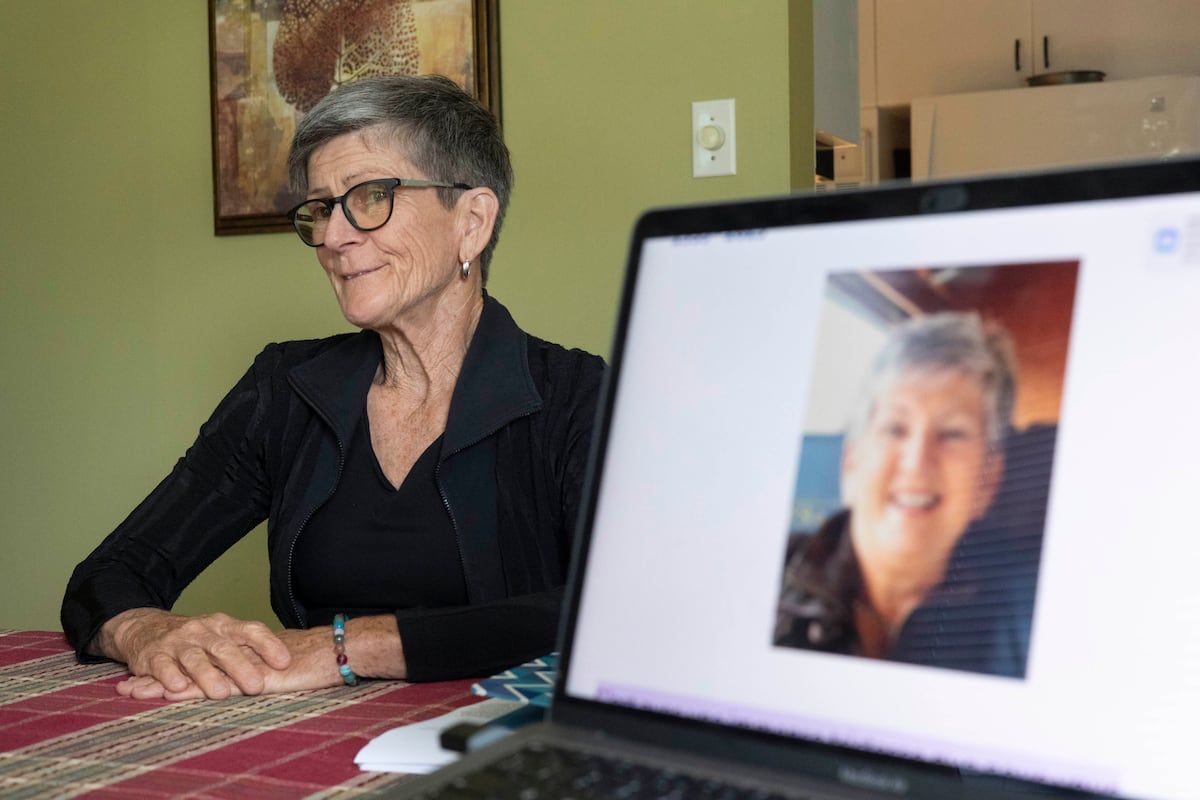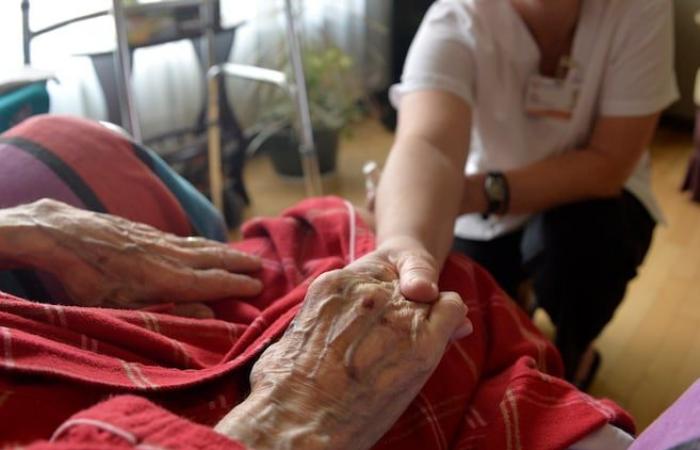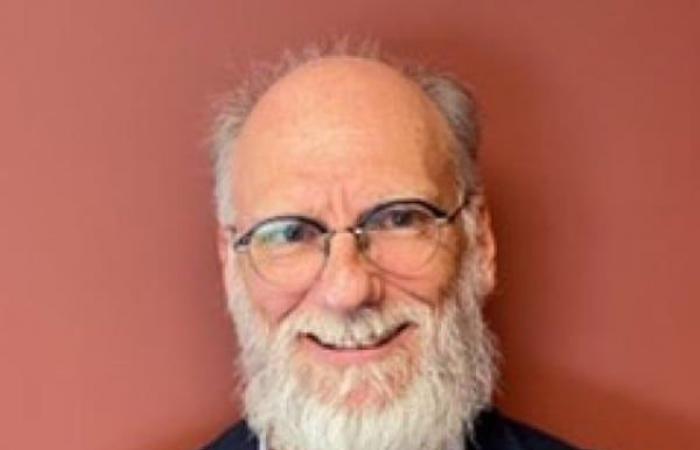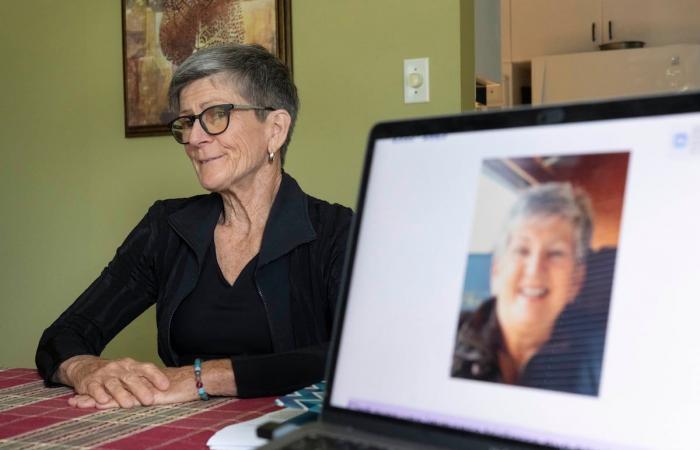Liberal seniors critic Linda Caron reacted strongly to the Coops de l’information report on the deaths of two RPA residents in the Outaouais. Coroner Francine Danais was unable to determine what happened in the hours leading up to the death of Gaston Roy, 78, who was nevertheless being monitored at all times by a care attendant. Questions also remained unanswered in the case of Dolorès Kearney, an 88-year-old woman who had to cry and ask for help for several days before being taken to hospital for a broken hip.
“It’s totally unacceptable and it’s extremely sad,” said Ms. Caron. “I think we’re witnessing a perfect storm, where there are several elements at play.”
Gaston Roy with his three children, Isabelle, Dominique and Pascale. (Courtesy)
First, the training of attendants “does not seem to be equal everywhere,” observes the Liberal MP. “The government has made many cohorts of training for beneficiary attendants shorter, with hundreds of hours less. So, I think that really does not help and that should be reviewed.”
While the coroner recommends that attendants be required to take notes, so that the condition of patients is better documented, Linda Caron believes that such a measure would be justified “at least when there is a change in behaviour.”
Associate professor at the École nationale d’administration publique (ENAP) specializing in the issue of RPA, Louis Demers maintains that “in an ideal world, we would like employees to have complete secondary education, with complete employee training as well, and for them to take notes.”
Louis Demers is an associate professor at ENAP. (ENAP)
“It’s easy to say in absolute terms,” he continues. However, recruiting orderlies is very difficult, particularly in small RPAs. “It’s difficult to require people you have trouble recruiting and retaining to have more training,” explains Mr. Demers.
He stresses that any obligation to take notes should aim to achieve a certain “balance”, since the employees have “limited training and limited time”.
The Minister responsible for Seniors, Sonia Bélanger, for her part wanted to offer her “sincere condolences to the loved ones” of Gaston Roy and Dolorès Kearney. “We are following up on the coroner’s recommendations,” she added in a short statement provided by her office.

Diane Dolan is the daughter of Dolores Kearney. (Simon Séguin-Bertrand/Le Droit)
“Double standard”
At the Quebec Liberal Party (PLQ), Linda Caron was surprised to learn that the Ministry of Health wants to concentrate its efforts on public network attendants, so that those in RPAs are “not prioritized.”
In the context where RPAs find themselves with “too heavy” cases due to the lack of places in long-term accommodation, “it is a double standard that is unacceptable,” protests the official opposition spokesperson for seniors.
At ENAP, Louis Demers also heard a lot about the severity of the cases, during interviews with owners of small RPAs. People “with a great loss of autonomy” like Gaston Roy and Dolorès Kearney should not have been in RPAs, the professor believes.
“With the number of people aged 75 and over having increased significantly, there are people in RPAs who need fairly intensive assistance care. For RPAs, especially small ones, […] It is very difficult to have well-trained attendants, especially since the remuneration that small RPAs can offer their attendants is much lower.”
— Louis Demers, associate professor at the National School of Public Administration
The professor believes that planning for the needs of an aging population has not been well done by the various governments, even though demographic change is “pretty much one of the only things that can be predicted with some certainty.”
“The Coalition Avenir Québec government preferred to give out cheques rather than invest in public services,” notes Mr. Demers. “That’s politics. We’re not always happy with the choices that politicians make, but they’re the ones we elected.”
The lack of places will continue
With the increasing number of seniors, “it is certain” that there will continue to be a shortage of places in long-term care centres (CHSLDs) and seniors’ homes, says Louis Demers.
Residents of RPAs are entering at an older age “because home services have made progress”. Result: “the clientele is heavier”.

Linda Caron is the official opposition’s spokesperson for seniors. (Edouard Plante-Fréchette/La Presse Archives)
On the PLQ side, Ms. Caron believes that the CAQ must find a solution to the shortage of places in CHSLDs and the shortage of staff affecting seniors’ homes.
In the case of the deaths of Gaston Roy and Dolorès Kearney, the Liberal elected official points out that while waiting for CHSLD places, workers from private agencies had been dispatched by the public network. “There is not just one culprit in all of this,” she says. “That’s why I’m talking about a perfect storm. The government has to act on all of these fronts, because it’s unacceptable.”









